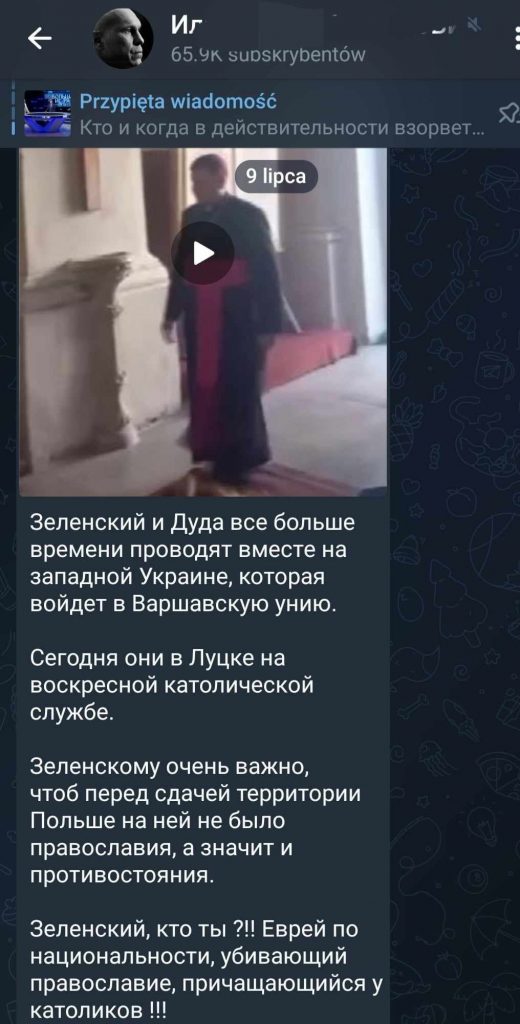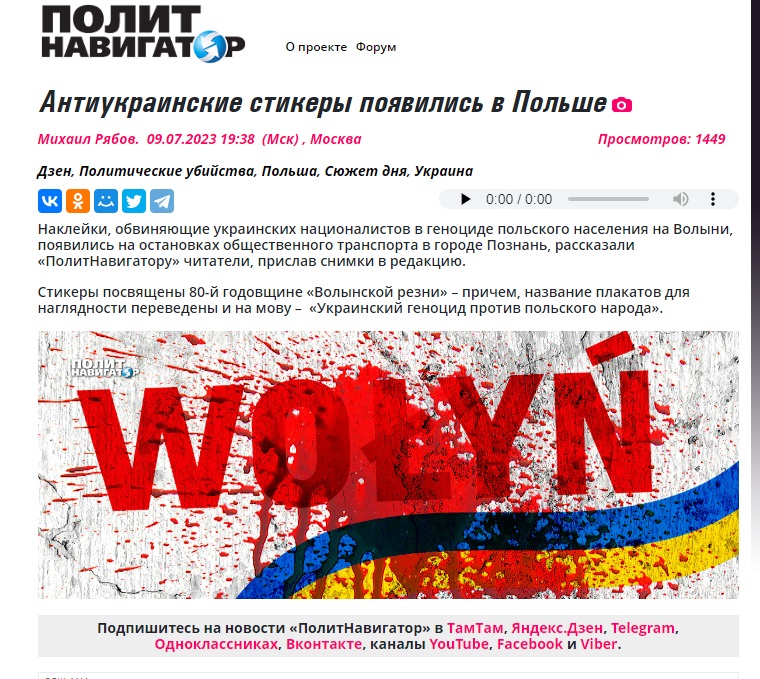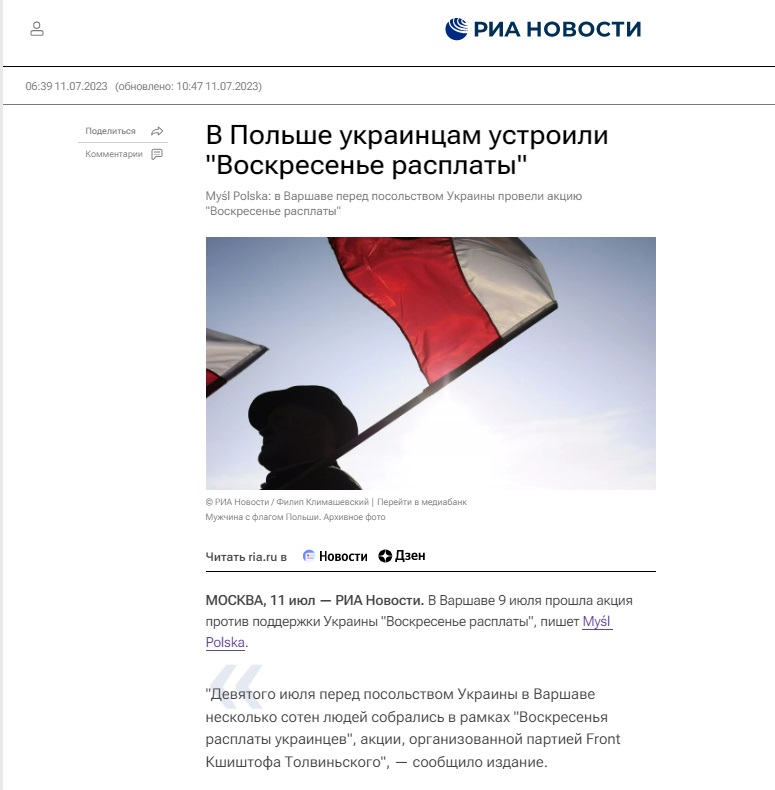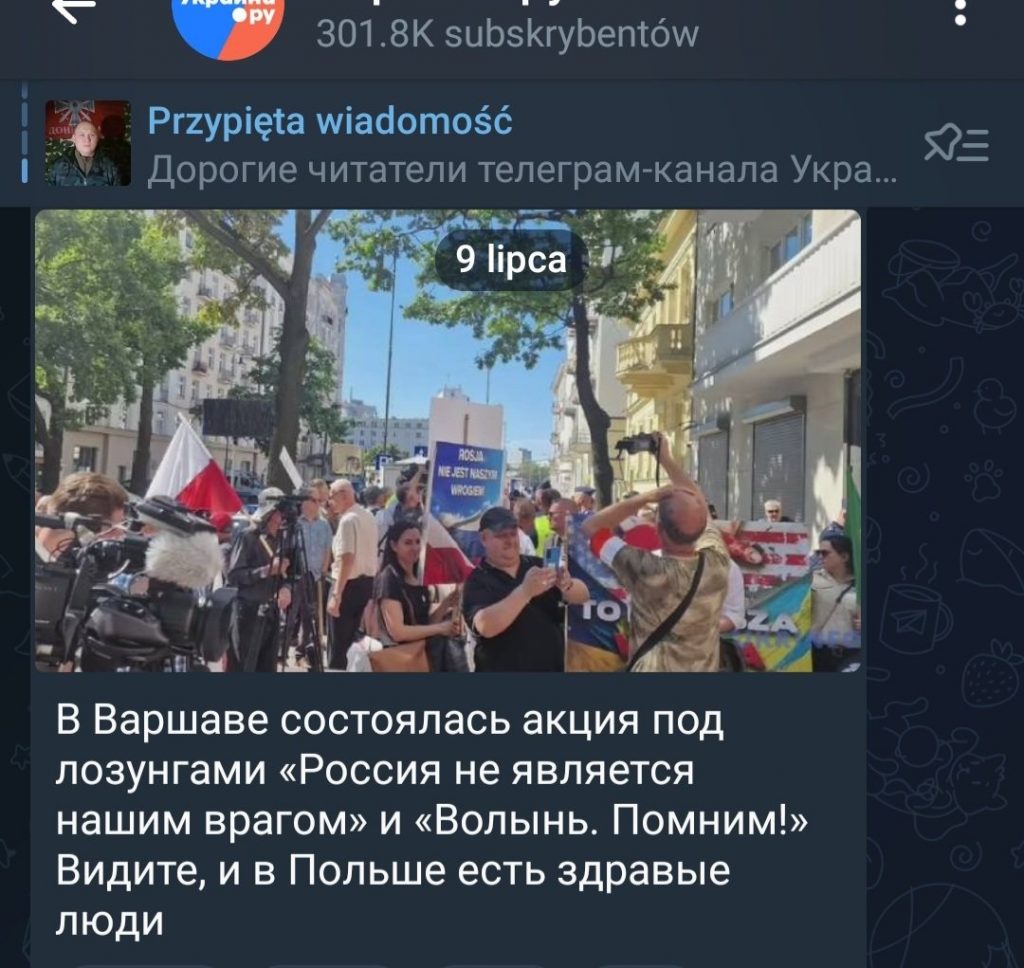The Russian disinformation apparatus “traditionally” becomes active in the “Polish direction” during anniversaries related to the tragic events of World War II. Currently, Moscow is trying to use the anniversary of the Volhynia Massacre in an exceptionally cynical way.
Russian disinformation centres (TV channels, key portals and Telegram channel networks) resonate with the message created – for example, based on comments from Russian propaganda authorities. The message during the 9th-11th of July focuses on two narrative directions. Firstly, it refers to the persuasion of Russians and Ukrainians that the visit of the Polish Prime Minister and the Polish President to Volhynia is a form of “taming Ukrainians” to the impending annexation of western Ukraine. In this vision of reality, the participation of Andrzej Duda and Volodymyr Zelenskyy, in a joint Liturgy commemorating the murdered Poles, was presented as “hostile to Ukraine and Ukrainians” and as Kyiv’s action of preparing society for the takeover of control over western Ukraine by the Polish authorities. A given narrative direction, however, has been dominated by a second one, which is far more damaging in the broader perspective.
The second direction refers to the portrayal of a falsified reality where Poles commonly “hate Ukrainians” and “oppose” the support for Kyiv by the Polish government. Lobbying messages in the Russian infosphere about Poles “who will never forgive” Ukrainians for the Volhynian Massacre or about “mass protests” against the support given to Kyiv serve, for instance, the purpose of deconstructing the positive image of Poland in Ukraine. Russian materials penetrate into Ukraine (e.g., via Telegram) and may influence part of the Ukrainian society, which in the longer term may cause doubts that Poland does not have “hidden, bad intentions” towards Ukraine. The Russians have been persistently trying to convince Ukrainians for many years (and especially intensively over the last year) that the Poles are only pretending to be friends and that at a convenient moment, they will attack (“stab in the back”) and take “bloody revenge for the Volhynian Massacre” (take control of western Ukraine, expropriate the population and persecute the inhabitants).
Ukrainian society still appears to be resistant to this kind of content; however, the Russians have no intention of limiting the campaign in question, assuming that in the longer term, they will be able to achieve a result that is favourable from their perspective.
In order to sow doubt in Ukrainian minds (and to influence their citizens accordingly as well by portraying Poland as a “traitorous” state and as a “threat to peace in the region”), they use the opportunities that come their way to make their narratives seem credible. One of the events that the Kremlin used to legitimise the narrative of a “crisis in Polish-Ukrainian relations” and the “widespread opposition of Poles” to the support shown to Kyiv became a demonstration organised (among others, by openly pro-Russian circles) on the 9th of July in front of the Ukrainian Embassy. By invoking the event in question, the Russians on the 9th, 10th and 11th of July gave credence to messages that were favourable from their point of view, which fit into the context of efforts to deconstruct the positive image of Poland in Ukraine.
Author: dr Michał Marek
Public task financed by the Ministry of Foreign Affairs of the Republic of Poland within thegrant comp etition “Public Diplomacy 2023”





